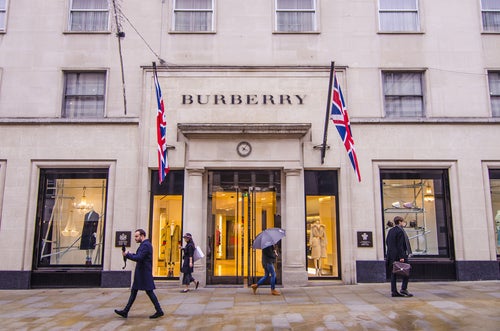
Luxury fashion brand Burberry has refinanced its revolving credit facility (RCF) to a GBP300m sustainability-linked loan, coordinated by Lloyds Bank.
The facility is linked to the achievement of key ESG targets as part of the company’s ambition to become Climate Positive by 2040.
Announced in June, the bid includes accelerating emissions reductions across its extended supply chain (Scope 3) by 46% by 2030 and becoming net zero by 2040, ten years ahead of the 1.5 degrees Celsius pathway set out in the Paris Agreement.
The loan builds on Burberry’s efforts to embed ESG across its operations, including its sources of financing. In September 2020, it became the first luxury brand to issue a sustainability bond, enlisting the support of investors to finance ambitious sustainability projects including refurbishing properties across its portfolio which are certified by Leadership in Energy and Environmental Design (LEED) or Building Research Establishment Environmental Assessment Method (BREEAM) and ensuring natural resources are sourced sustainably and pollution from packaging is prevented.
“At Burberry we believe our long-term success depends on creating a net zero future,” says Burberry COO and CFO Julie Brown. “Linking sources of funding to sustainable initiatives will help drive this, not only in the luxury industry but also across the wider economy. We’re grateful for the support of our relationship banks in establishing this funding, which will help us on our journey to decarbonise our own operations and extended supply chain.”
Burberry is working with Lloyds Bank’s sustainability and ESG finance team, which launched in 2021, to support corporate clients with sustainability plans, funding and strategic insights.
Scott Barton, managing director of Lloyds Bank’s corporate and institutional coverage team, adds: “Helping our clients reach net zero is a key priority for us. Working alongside a climate leader such as Burberry as it progresses its green journey will be crucial for helping the wider luxury fashion industry meet its ambitious goals. We’re proud to have acted as lead coordinator on this funding package for Burberry and look forward to helping support Burberry on its sustainability journey.”
A number of brands have made similar moves in signing credit facilities linked to their sustainability goals or performance in recent months. UK retailer Marks & Spencer (M&S) signed a GBP850m (US$1.13m) revolving credit facility linked to its Plan A Net Zero Targets in December, while German luxury fashion brand Hugo Boss took out a revolving syndicated loan with a sustainability focus for the first time in the same month.
Most recently, garment manufacturing giant Epic Group signed a sustainability-linked trade finance facility with HSBC.



